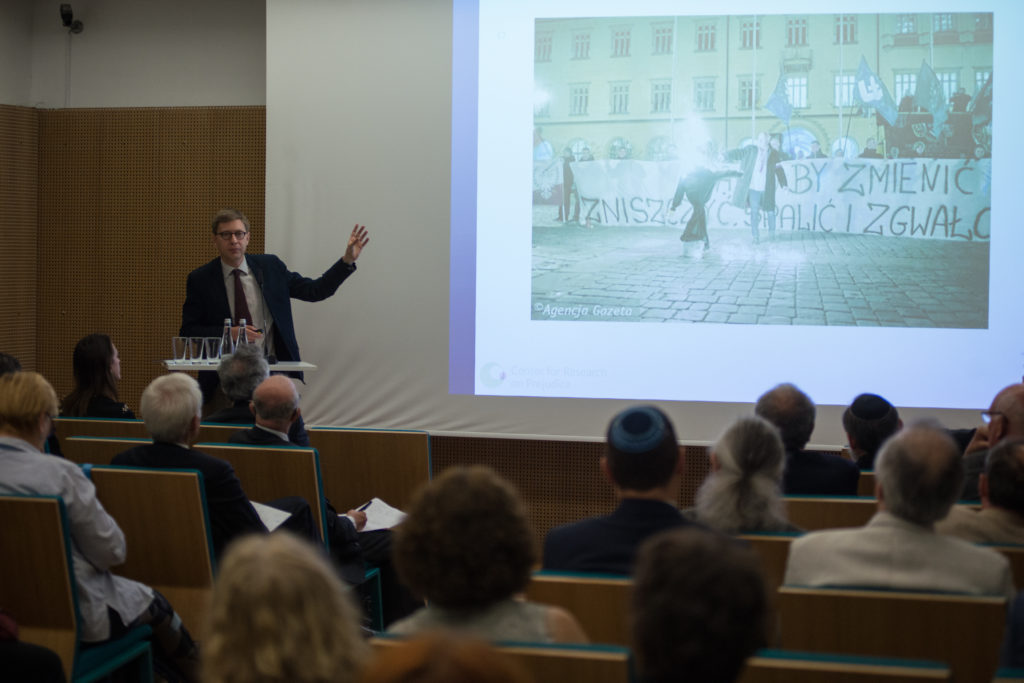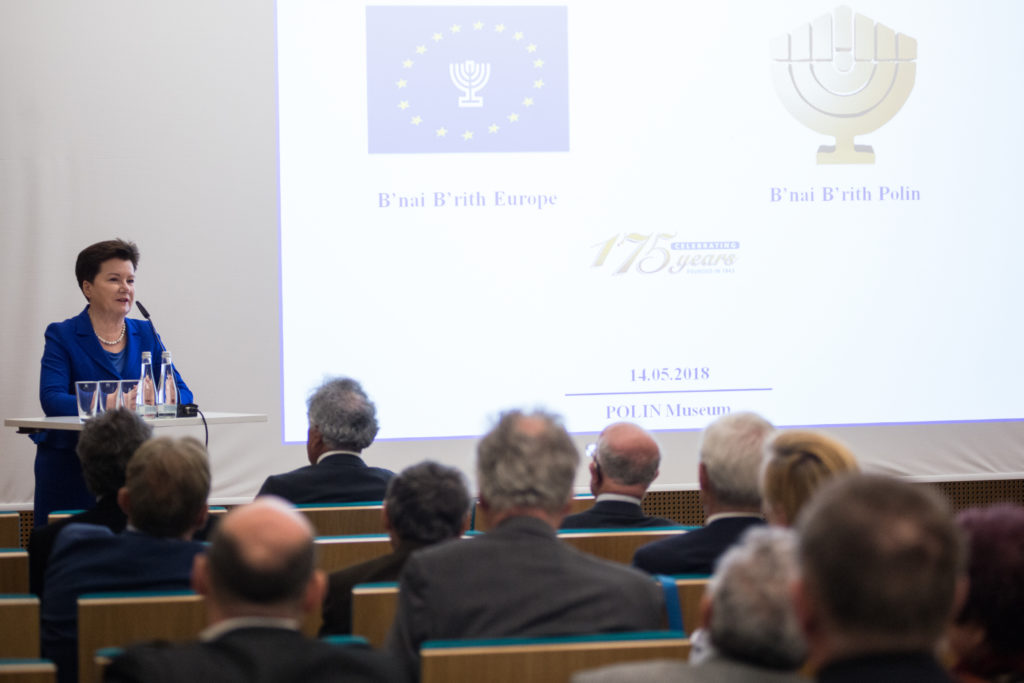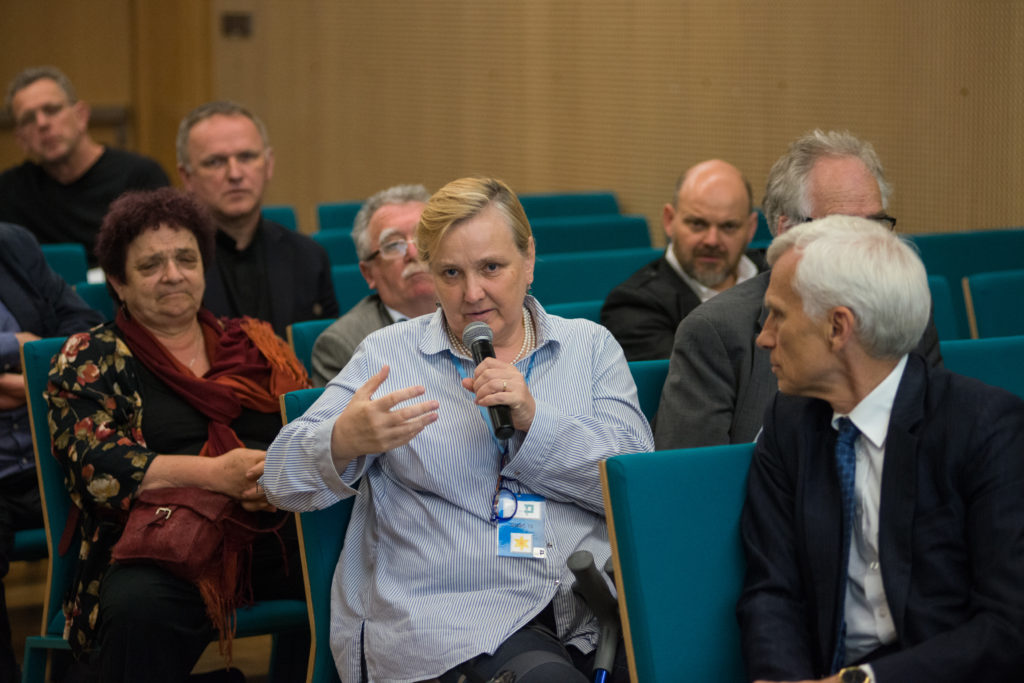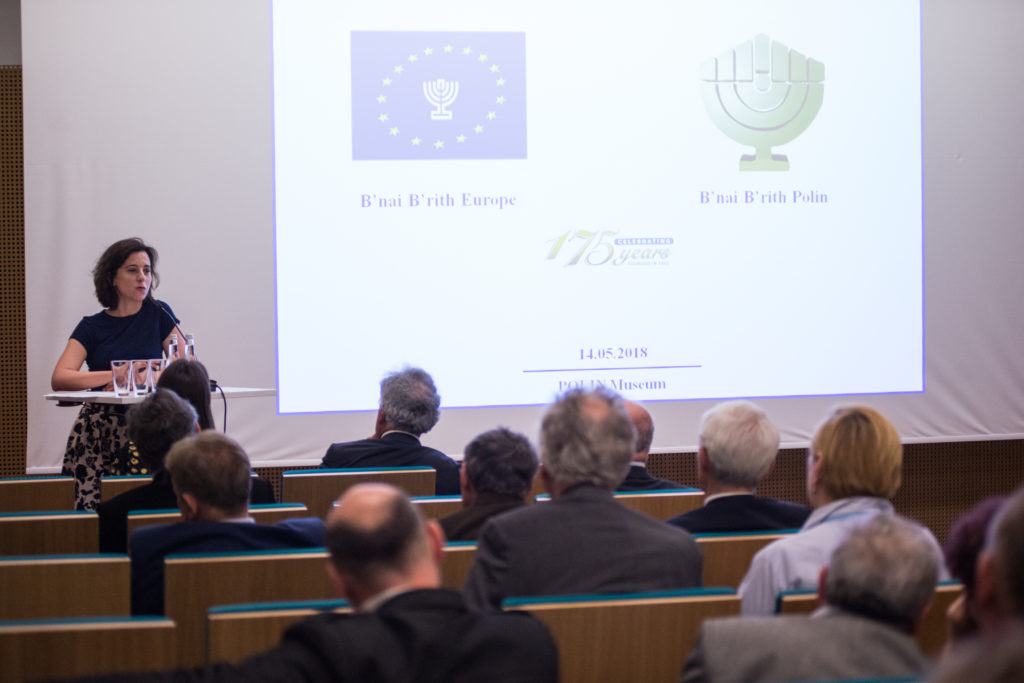
The meeting with the B’nai B’rith Lodges and the Jewish community of Poland, jointly organised by B’nai B’rith Europe President and Polin Lodge President, was held in Warsaw, on the 14th of May 2018. Guests included Warsaw Mayor Hanna Gronkiewicz-Waltz, Member of the Polish Parliament Marcin Święcicki, Chairman of the Museum Marian Turski, President of B’nai B’rith Europe Serge Dahan, President of the Polin Lodge Sergiusz Kowalski, President of the Jewish community of Warsaw Anna Chipczynska, representatives of the Jewish Polish community, B’nai B’rith Poland, Denmark, Ukraine, France and Belgium, and international organisations, as well as members of the European Commission and Parliament.
This event highlighted the contribution of the Jewish community to the Polish culture, as passionately explained by Professor Dariusz Stola, Director of the POLIN Museum. “One cannot understand the history of Jews without understanding the history of this country, and one cannot understand the history of this country without the Jewish one”.
Professor Bilewicz, member of B’nai B’rith Poland and Director of the Research Center on Prejudice at the Warsaw university, analysed the striking differences and common points of antisemitism in Eastern and Western Europe, based on data collected from recent years. He explained the correlation between populist movements and the expansion of a “network of hatred”, linking antisemitic beliefs and islamophobia, sexism, homophobia and xenophobia.
Member of the European Parliament (EPP) Róża Thun stated that every extremist movements look alike, and that any populist and facist movement should be fought against, to safeguard democratic values.
Creating ties between Jewish and Christian communities was evoked by Father Lemański, who said “to fight against the distance, we should meet up again”.
Professor Bilewicz also insisted on the impact of hate speech online among youth : in 2016, 74% of young Poles have daily read antisemitic statements online, which shows how antisemitism has become normalised.
Deputy coordinator on combating antisemitism of the European Commission Johannes Börmann, introduced the actions of the European institutions in order to support the Jewish community and the free expression of its identity. He also talked about the next meeting of the European Commission on the 22nd of May, to find new educational means to deepen the fight against discriminations. He mentioned the call for projects of the Commission related to the fight against antisemitism, which reaches an amount of 7 millions of euros.
Concrete actions have been presented, such as awareness programs and monitoring reports of OSCE, by advisor on combating anti-semitism Anna Zielinska, as well as the survey of the Fundamental Rights Agency of the European Union. This project, addressed to Jewish communities of 13 different Member states, aims to collect data regarding the perception and the reality of antisemitism. This survey is currently widely spread.
President of B’nai B’rith Europe Serge Dahan thanked the Polin Lodge and especially President Sergiusz Kowalski and Vice-President Franck Telling Saphar for the organisation of this event. Facing the rise of violence, he invited Poland and other European countries to adopt the definition of antisemitism of the International Holocaust Remembrance Alliance, endorsed by the European Parliament in a resolution on the 1st of June, 2017.
This meeting and dialogue between B’nai B’rith Europe, the Jewish community, political leaders and academics was a success. President Serge Dahan committed himself to renew these gatherings, which deal with essential matters on the life and future of Jews in Europe.
A guided tour of the museum concluded the meeting. With a program composed of permanent and temporary expositions, as well as educational and cultural activities, the POLIN museum is a place for Polish citizens of all ages and foreign visitors to better understand the Jewish contribution to Europe.
“History keeps writing itself” concluded Dariusz Stola, “the Museum will never be complete, as it is perpetually being constructed, through the visit of thousands of people, who contribute to write history by integrating the wealth of diversity”.



